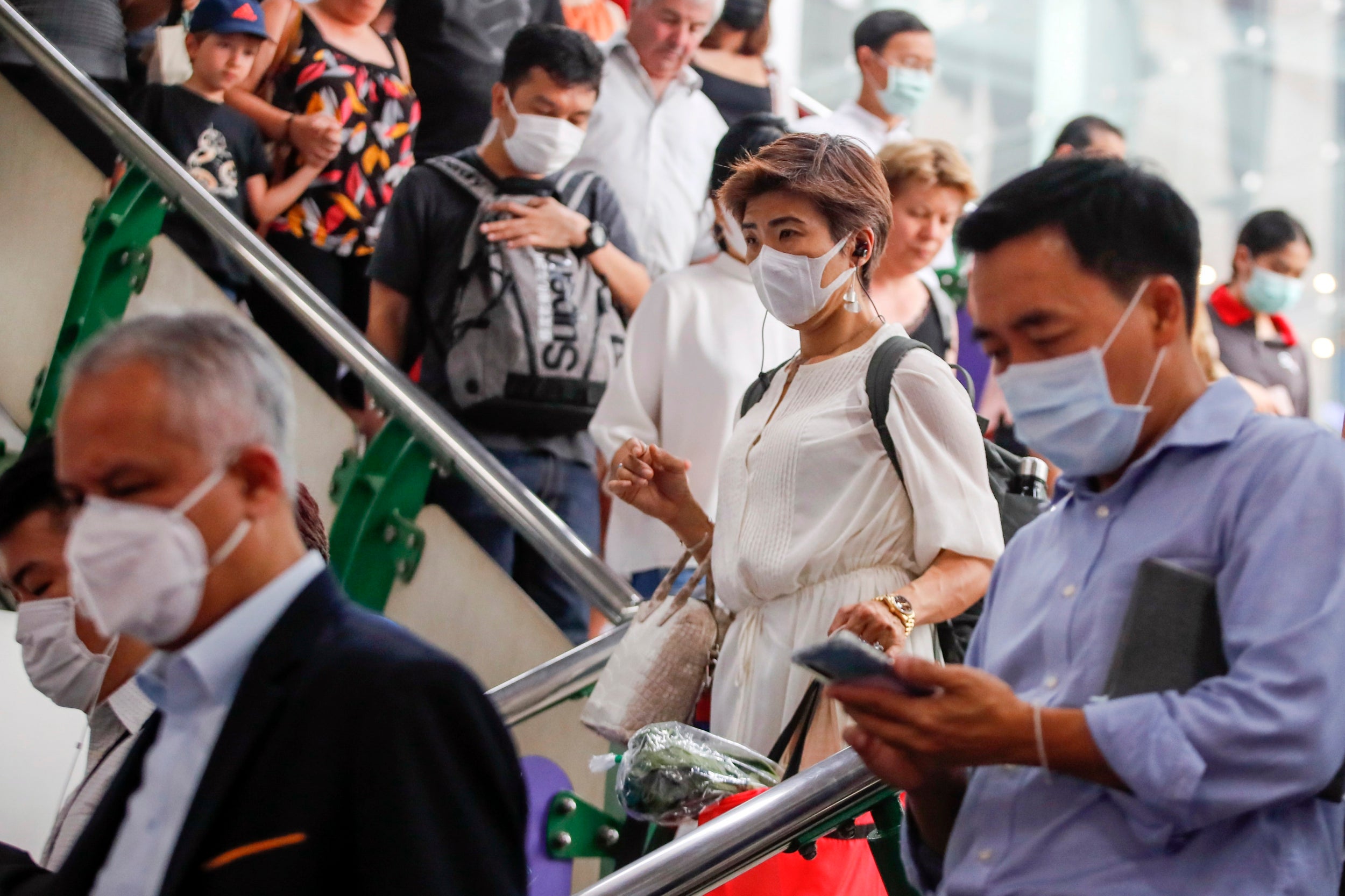Why coronavirus affects men more than women
Like the 2003 Sars outbreak and the 1918 Spanish flu pandemic, death rates among male victims are far higher
Your support helps us to tell the story
From reproductive rights to climate change to Big Tech, The Independent is on the ground when the story is developing. Whether it's investigating the financials of Elon Musk's pro-Trump PAC or producing our latest documentary, 'The A Word', which shines a light on the American women fighting for reproductive rights, we know how important it is to parse out the facts from the messaging.
At such a critical moment in US history, we need reporters on the ground. Your donation allows us to keep sending journalists to speak to both sides of the story.
The Independent is trusted by Americans across the entire political spectrum. And unlike many other quality news outlets, we choose not to lock Americans out of our reporting and analysis with paywalls. We believe quality journalism should be available to everyone, paid for by those who can afford it.
Your support makes all the difference.The coronavirus that originated in China has spread fear and anxiety around the world. But while the novel virus has largely spared one vulnerable group — children — it appears to pose a particular threat to middle-aged and older adults, particularly men.
This week, the Chinese Centre for Disease Control and Prevention (CDC) published the largest analysis of coronavirus cases to date. Although men and women have been infected in roughly equal numbers, researchers found, the death rate among men was 2.8 per cent, compared with 1.7 per cent among women.
Men also were disproportionately affected during the Sars and Mers outbreaks, which were caused by coronaviruses. More women than men were infected by Sars in Hong Kong in 2003, but the death rate among men was 50 per cent higher, according to a study published in the Annals of Internal Medicine.
Some 32 per cent of men infected with Middle East respiratory syndrome died, compared with 25.8 per cent of women. Young adult men also died at higher rates than female peers during the influenza epidemic of 1918.
A number of factors may be working against men in the current epidemic, scientists say, including some that are biological, and some that are rooted in lifestyle.
When it comes to mounting an immune response against infections, men are the weaker sex.
“This is a pattern we’ve seen with many viral infections of the respiratory tract — men can have worse outcomes,” said Sabra Klein, a scientist who studies sex differences in viral infections and vaccination responses at the Johns Hopkins Bloomberg School of Public Health.
“We’ve seen this with other viruses. Women fight them off better,” she added.
Women also produce stronger immune responses after vaccinations, and have enhanced memory immune responses, which protect adults from pathogens they were exposed to as children.
“There’s something about the immune system in females that is more exuberant,” said Dr Janine Clayton, director of the Office of Research on Women’s Health at the National Institutes of Health.
But there’s a high price, she added: Women are far more susceptible to autoimmune diseases, like rheumatoid arthritis and lupus, in which the immune system shifts into overdrive and attacks the body’s own organs and tissues.
Nearly 80 per cent of those with autoimmune diseases are women, Clayton noted.
The reasons women have stronger immune responses aren’t entirely clear, and the research is still at an early stage, experts caution.
One hypothesis is that women’s stronger immune systems confer a survival advantage to their offspring, who imbibe antibodies from mothers’ breast milk that help ward off disease while the infants’ immune systems are still developing.
A stew of biological factors may be responsible, including the female sex hormone estrogen, which appears to play a role in immunity, and the fact that women carry two X chromosomes, which contain immune-related genes. Males, of course, carry only one.
Experiments in which mice were exposed to the Sars coronavirus found that the males were more susceptible to infection than the females, a disparity that increased with age.
The male mice developed Sars at lower viral exposures, had a lower immune response and were slower to clear the virus from their bodies. They suffered more lung damage, and died at higher rates, said Dr Stanley Perlman, a professor of microbiology at the University of Iowa who was the senior author of the study.
When researchers blocked estrogen in the infected females or removed their ovaries, they were more likely to die, but blocking testosterone in male mice made no difference, indicating that estrogen may play a protective role.

“It’s an exaggerated model of what happens in humans,” Dr Perlman said. “The differences between men and women are subtle — in mice, it’s not so subtle.”
Health behaviours that differ by sex in some societies may also play a role in disparate responses to infections.
China has the largest population of smokers in the world — 316 million people — accounting for nearly one-third of the world’s smokers and 40 per cent of tobacco consumption worldwide. But just more than 2 per cent of Chinese women smoke, compared with more than half of all men.
Chinese men also have higher rates of Type 2 diabetes and high blood pressure than women, both of which increase the risk of complications following infection with the coronavirus. Rates of chronic obstructive pulmonary disease are almost twice as high among Chinese men as among women.
In the United States, women are more proactive about seeking health care than men, and some small studies have found the generalisation applies to Chinese students at universities in the United States, as well.
In unpublished studies, Chinese researchers have emphasised that patients whose diagnoses were delayed, or who had severe pneumonia when they were first diagnosed, were at greatest risk of dying.
One study of 4,021 patients with the coronavirus emphasised the importance of early detection, particularly in older men. And men have been turning up in hospitals with more advanced disease.
But in areas of China outside Hubei province, the epidemic’s epicentre and where the majority of those affected are concentrated, the patterns are different: The illness appears to have dramatically lower mortality rates, and men are being infected at much higher rates than women, according to the Chinese CDC analysis.

Men may have a “false sense of security” when it comes to the coronavirus, said Akiko Iwasaki, a professor of immunology at Yale University who studies why some viruses affect women more severely.
Gathering and analysing data about the new virus by sex is important both for the scientists studying it and for the general public, experts said.
Since the start of the outbreak, for example, public health officials have emphasised the importance of washing hands well and often, to prevent infection. But several studies have found that men — even health care workers — are less likely to wash their hands or to use soap than women, Dr Klein said.
“We make these broad sweeping assumptions that men and women are the same behaviourally, in terms of comorbidities, biology and our immune system, and we just are not,” Dr Klein said.
The New York Times

Join our commenting forum
Join thought-provoking conversations, follow other Independent readers and see their replies
Comments